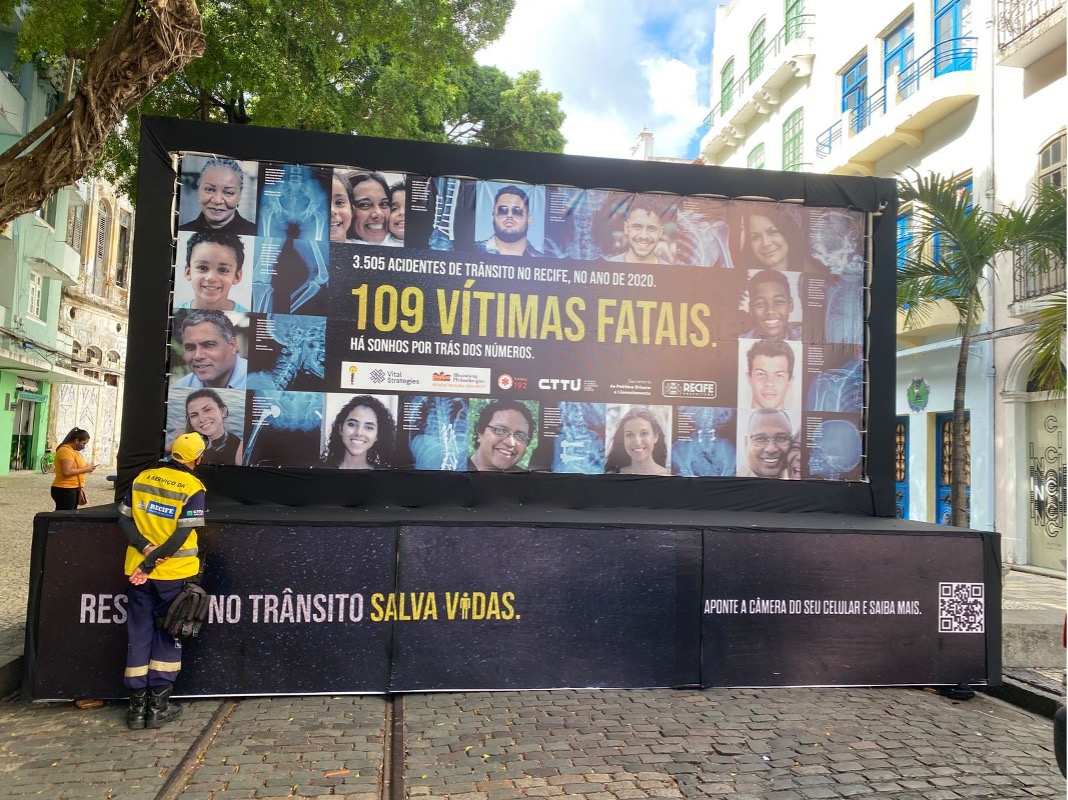Each year communities around the globe honor the nearly 1.3 million people who lose their lives on the world’s roads. By amplifying the voices of victims and their families, we recall how devastating road traffic crashes can be and why it is necessary to address crashes as a public health crisis, not isolated, unpreventable “accidents.”. The 2021 World Day of Remembrance for Road Traffic Victims coincided with the recent launch of the U.N.’s Second Decade of Action for Road Safety 2021-2030, a renewed call for urgent action to prevent deaths and injuries on the world’s roads.
As Vital Strategies remembers the people killed and severely injured in traffic crashes, and their families and communities, we urge governments and leaders to prioritize evidenced-based measures that can prevent further tragedies. This year’s global theme—“Act for Low Speeds”—reinforces the call for lower speeds to save lives. Setting a 30 km/h (20 mph) speed limit where people walk, live and play is one of the most effective ways to promote road safety.
The Bloomberg Philanthropies Initiative for Global Road Safety and the Partnership for Healthy Cities have supported the efforts of dozens of governments to enact smart, lifesaving strategies that include boosting data surveillance systems, using communication strategies—coupled with enforcement of strong laws—to improve road user behavior and strengthen legislation.
As our team works to support governments in achieving the Second Decade of Action’s goal to reduce road traffic deaths by 50% by 2030, we emphasize the need for lower speeds to both prevent the likelihood of a crash and the severity of the consequences when a crash does occur.
Get Our Latest Public Health News
Join our email list and be the first to know about our public health news, publications and interviews with experts.
On World Day of Remembrance 2021, here’s how 12 cities honored victims and their families, while pledging to prevent further senseless deaths on the roads:
Buenos Aires, Argentina: Shining a Spotlight on Road Safety
Buenos Aires illuminated the city’s most iconic monuments in yellow to bring awareness to road crashes and to recognize the lives lost. Secretary of Transportation and Public Works Juanjo Mendez tweeted about the event, and the city released balloons at the monument “Outbreaks of a New Consciousness,” where organizations that support the families of traffic victims participated. Among the organizations in attendance were Red Nacional de Víctimas de Tránsito, ACTIVVAS, Carla Arduini, Driving Conscience and Mothers of Pain, also accompanied by the Kennedy Choir.
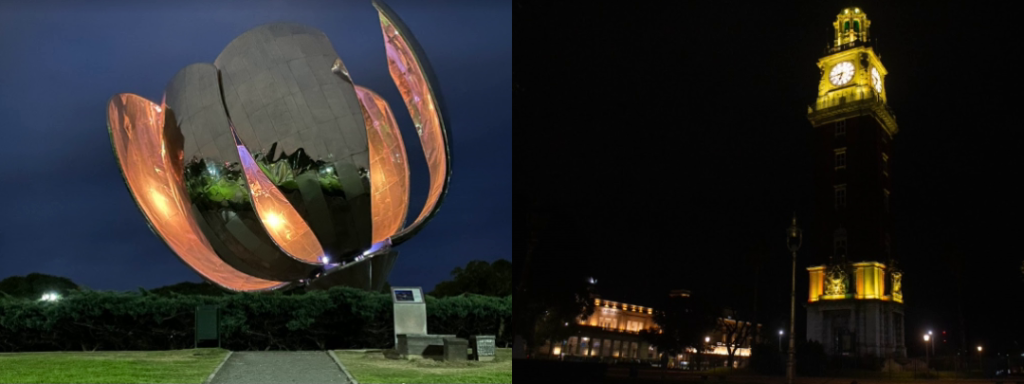
Recife and Salvador, Brazil: Lost Dreams Behind the Numbers
Stakeholders and city government officials installed panels at Largo do Farol da Barra in Salvador and at Rua do Bom Jesus in Recife. The panels, both called “There are Lost Dreams Behind the Numbers,” honored the 130 people who lost their lives in Salvador in 2020. A total of 109 people died in Recife in road crashes that same year. A QR code on the installations directs visitors to testimonial videos from victims or their families.
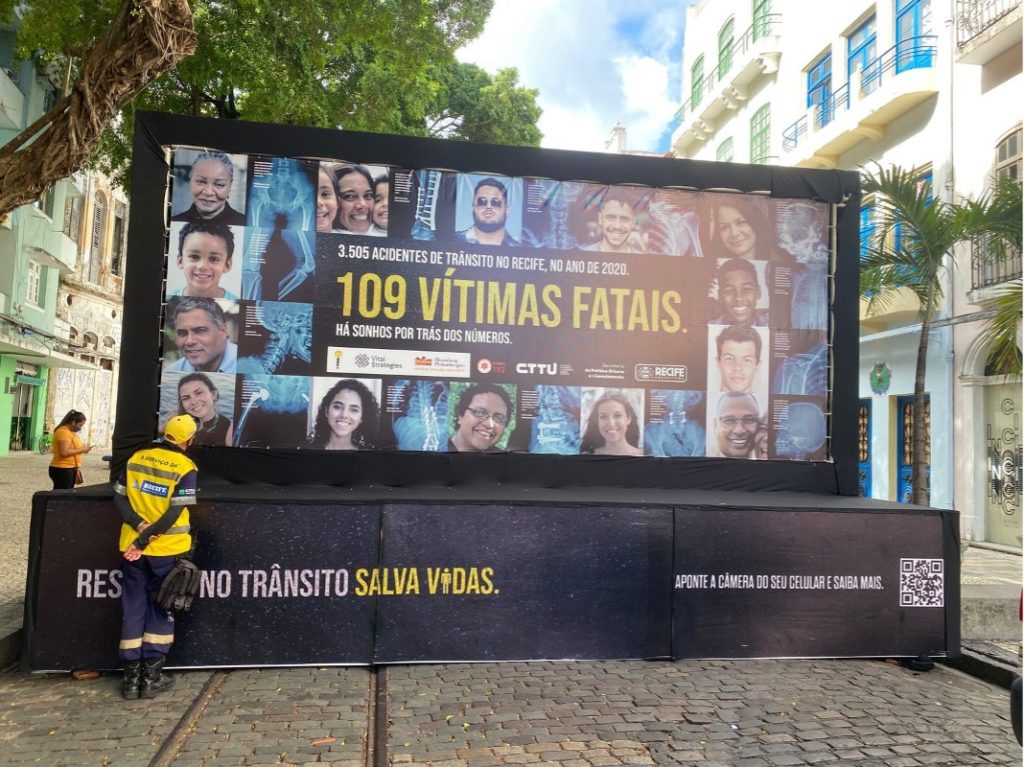
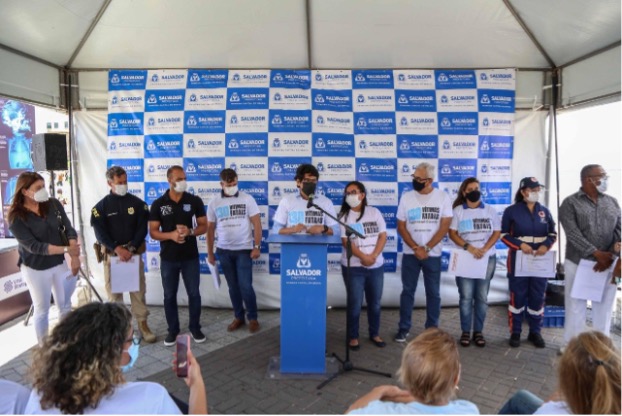
Guadalajara, Mexico: Public Memorials and Calling for Better Road Safety
In Guadalajara, city officials and civil society organizations highlighted road traffic victims through a public memorial and an installation that was placed in the city’s downtown area. Victims and their loved ones spoke about their experiences with road traffic crashes, which was shared on various social media outlets.
Mayor Pablo Lemus attended the event, along with Director of Mobility Jesús Carlos Soto and other local officials. In an online statement, Mayor Lemus called for “public policies focused on improving road safety in the city” with an emphasis on protecting pedestrians, cyclists and people with disabilities.
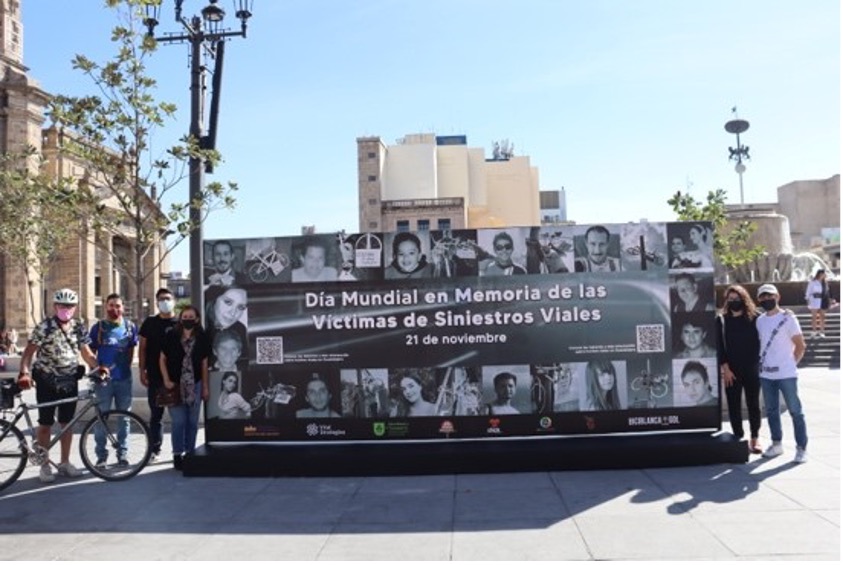
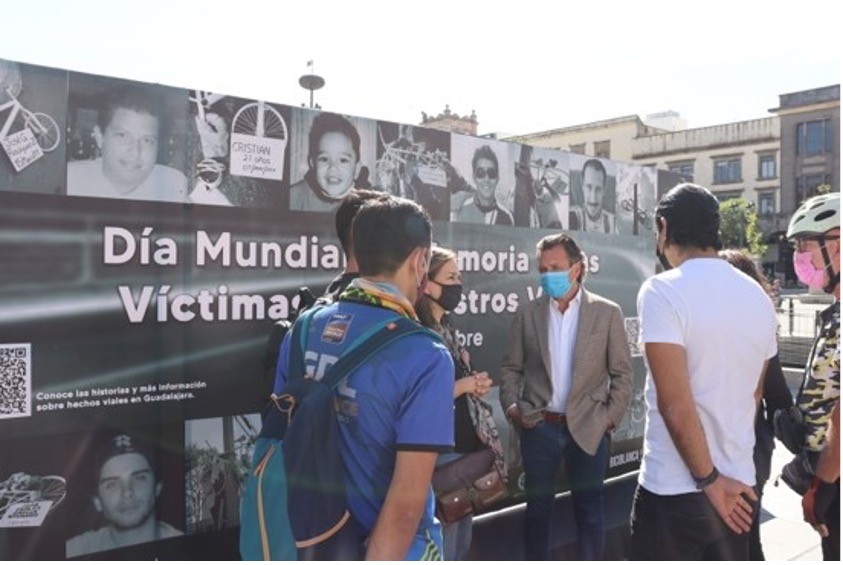
Maharashtra, India: Testimonials and Billboards Around the City
The Mumbai Traffic Control Branch displayed 47 billboards across the city bearing testimonials from people who were affected by road crash-related deaths and injuries.
The billboards featured testimonials from Tanmay Pendse, Jacob Aghamkar and Arvind Prabhoo, who have all been affected by crashes caused by speeding and drink driving. Pendse lost his brother and 2-year-old nephew after a speeding truck crashed into his vehicle. Aghamkar crashed into the rear window of a car while riding a motorcycle, but sustained no injuries, which he attributes to the helmet he was wearing. Prabhoo, who was a medical student at the time of his crash, was left immobile following a drink driving-related crash involving he and his friends. The billboards urge road users to drive responsibly to avoid unnecessary deaths and injuries.
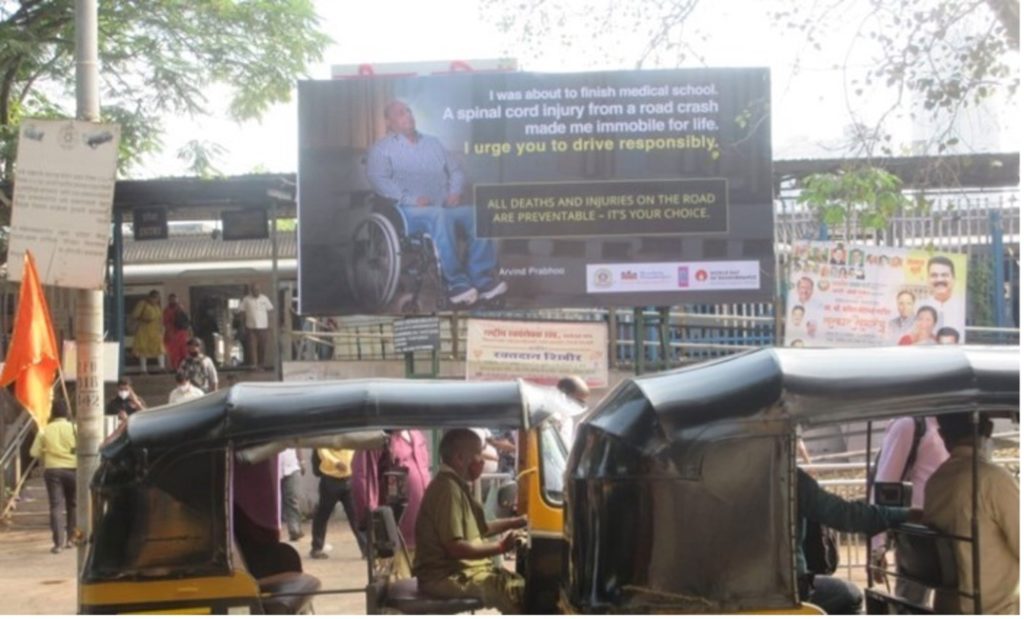
Delhi, India: Victims Share Their Stories
The Delhi Transport Department unveiled the stories of road crash victims to commemorate the day. Stories were shared through recorded video testimonials that addressed key risk factors, including speeding and the use of helmets and seat-belts.
Shashank Shekhar was one victim who shared the story of his brother’s serious injury in a road crash caused by speeding. Prem Pradeep, Shashank’s brother, was severely injured when a speeding driver crashed into him in 2017. Waking up from a long coma two years later, Prem was left with permanent loss of his motor functions, including his speech.
Highlighting the economic burden of a road crash on the victims’ families, Santosh Singh shared how losing her husband, Avdesh Singh, 10 years ago in a road crash forced her to take up work at a factory while raising two young daughters. Singh was killed after a speeding truck crashed into him and other pedestrians on a footpath in 2011 at Kashmere Gate.
These stories were coordinated with the Delhi Transport Department’s ongoing #SadakSurakshitDilliSurakshit (#SafeRoadSafeDelhi) social media push.
Quito, Ecuador: Realizing the Impacts of Road Crashes
Quito hosted a public event where family members spoke to a crowd of more than 150 people about the experience of losing a loved one to a road traffic crash. The event was led by the National Transit Agency and called on audience members to remember the people behind the data as the city works to raise awareness of the importance of following speed limits to prevent more deaths.
Family members and authorities lit torches as a symbol of continuing the fight against traffic crashes while honoring victims.
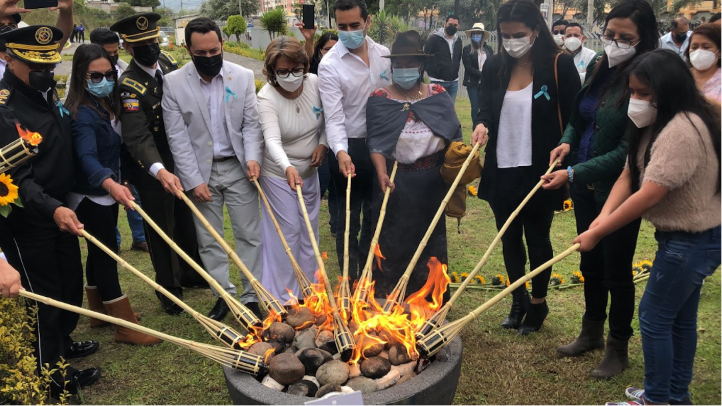
Guayaquil, Ecuador: Musical Tributes and Testimonials
In Guayaquil, an event called “Broken Stories Behind the Numbers,” was held to spread road safety awareness while remembering lives lost. A collaboration between the Transit and Mobility Agency, Píntate Ecuador Foundation, staff of the municipality of Guayaquil, traffic agents and road safety agencies, the event included stories, videos and live testimonials, giving a voice to families who have lost loved ones on the roads.
The military performed a musical tribute to the victims and white plants were given to their families as a sign of strength and resiliency.
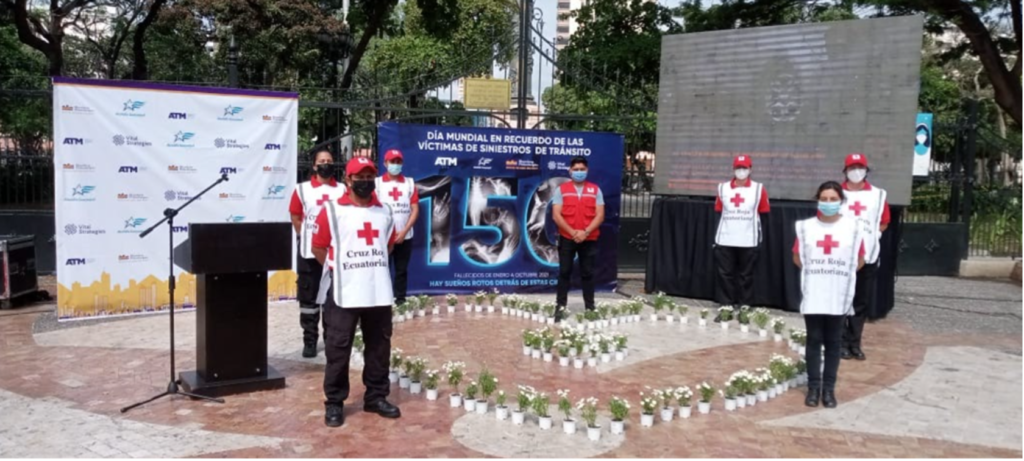
Bogotá, Colombia: Illuminating Landmarks to Honor Victims
Colombia’s World Day of Remembrance activities coincided with the launch of a new anti-speeding campaign called “Respect the Limits.” The campaign debuted during a press conference led by Minister of Transport Ángela María Orozco, Director of the National Road Safety Agency Luis Lota, Director of the National Transit Police Juan Alberto Libreros, and Jonás Romo, Vital Strategies’ Regional Deputy Director for Latin America. During the event, the ministry lit up the tallest building in Bogotá, the Colpatria Tower, in honor of road traffic victims.
The city also displayed a five-foot-tall installation that highlighted the impact of road crashes within Bogotá. The installation was unveiled in an event hosted by Juan Esteban Martínez, Subsecretary of Mobility of Bogotá, Luis Lota, Director of the National Road Safety Agency and Mary Bottagisio, founder of the Liga Contra la Violencia Vial.
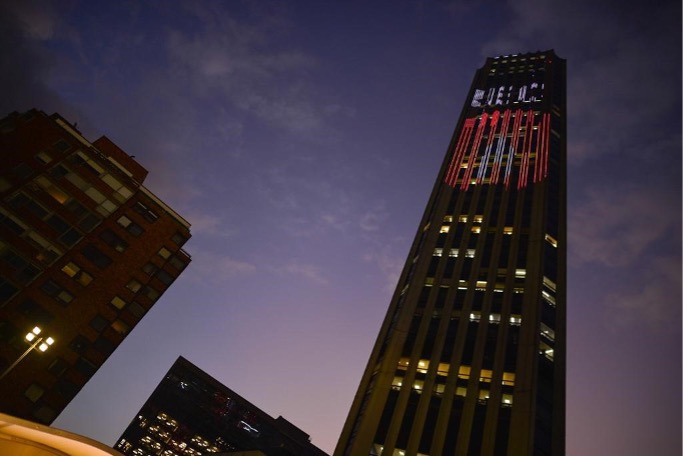
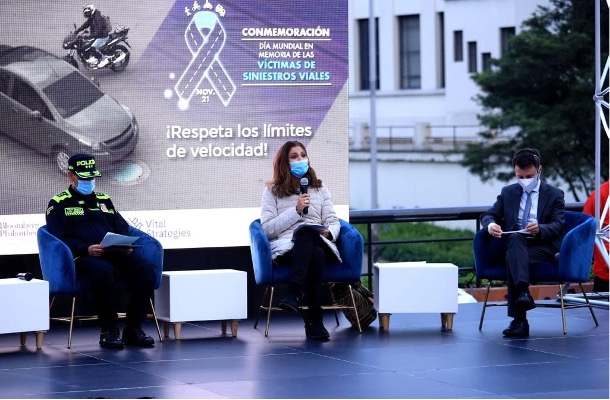
Cali, Colombia: Public Messaging to Bring Awareness
The city of Cali honored victims through a commemorative event that was broadcast on Facebook Live. The event—hosted by Secretary of Mobility William Vallejo—included Cali’s newest mass media campaign, “Your Family Waits for You, Slow Down,” which was aired on television, billboards and social media through December. The campaign features testimonials that urge drivers to follow speed limits to save lives, as well as a panel installation that highlights the number of lives lost in road traffic crashes in 2020.
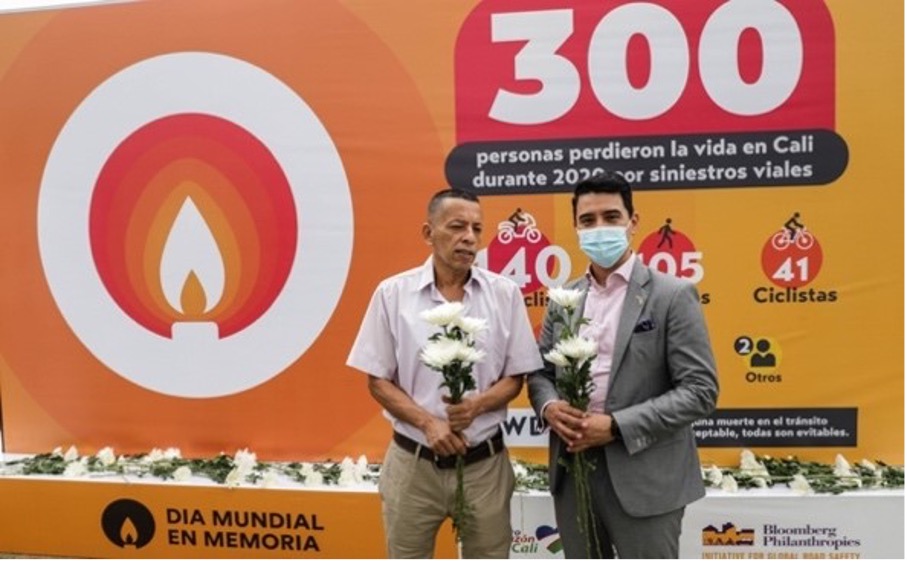
Kampala, Uganda: Prayers for Victims
The World Day of Remembrance was marked in Kampala with an event attended by more than 100 people. The event included interdenominational prayers led by the Inter-Religious Council of Uganda, testimonials from road crash survivors from the Amputee Self Help Network Uganda, and a call to action urging the government to waive taxes on prosthetic limbs.
“An artificial limb costs over 70million Ugandan shillings (USD $19,638),” explained Nakawa Division Mayor Eng Balimwezo, who is also a road crash survivor. “We have to think about those who can’t afford them, so my plea to the government of Uganda and other stakeholders is to put key road safety guidelines in effect and to teach people how to use and follow road signs.”
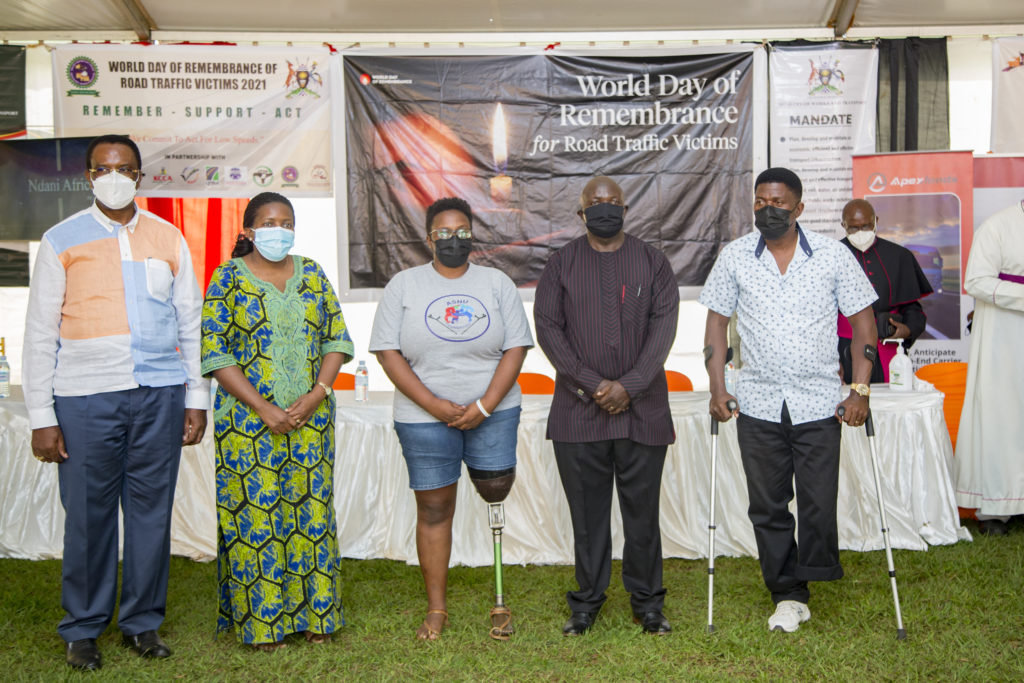
Addis Ababa, Ethiopia: A Moment of Silence and Candle Lighting
Ethiopia’s capital city’s activities were coordinated by the Traffic Management Agency and AaBET Hospital, one of the Addis Ababa’s primary trauma medical centers and where the commemoration took place. Activities kicked off with a moment of silence and a candlelit service for road traffic victims and was followed by keynote speeches from the hospital’s medical director, Dr. Yonas Kefelegn and Kibebewu Midekisa, the director general of the Traffic Management Agency.
Other activities throughout the day included airing of a testimonial video featuring road traffic victims, a panel discussion with high-ranking officials, a presentation of two research studies that focused on key risk factors for car crashes, and visits to some of the hospital’s patients who had been injured in car crashes. More than 100 people attended the ceremony.
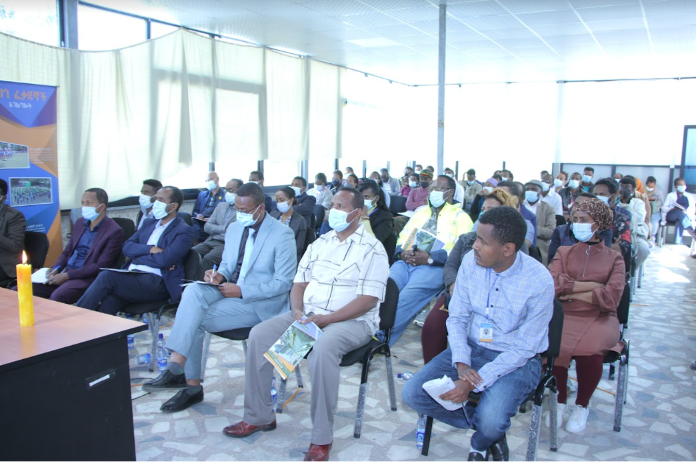
About the Bloomberg Philanthropies Initiative for Global Road Safety: The Bloomberg Philanthropies Initiative for Global Road Safety (BIGRS) works with the world’s leading road safety organizations to implement road safety activities and coordinate with in-country governmental and non-governmental stakeholders. BIGRS emphasizes achieving outcomes and using high-quality monitoring and evaluation mechanisms to continually assess progress.
Learn more about our road safety work and follow us on Twitter @VitalStrat.
